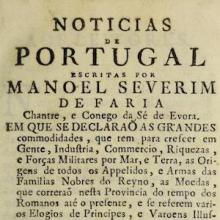Government
Conversations between the Catholic Church and the Polish Government
Poland was unique among Warsaw Pact countries in the degree of influence retained by the Catholic Church. But the church was also viewed as a powerful competitor to the state, and its leaders were among the first to be monitored and harassed during periods of social unrest.
Soviet Plan to respond to the Political Crises in the Soviet Republics
As Gorbachev’s reforms began to take hold across the Soviet Union, various Soviet Republics became hotbeds of nationalist, anti-Soviet movements The Georgian SSR was one of the centers of such acitivties with protests in Georgia reaching their peak on April 4, 1989, when tens of thousands of Geor
Lech Walesa's Plans for the Roundtable Talks
In September 1988, Lech Walesa, leader of Poland's Solidarity Movement and later president of Poland following the collapse of communism (1990-1995), wrote this document a few months prior to the historic Roundtable Talks between party and state officials and the opposition that eventually took p
Short Teaching Module: Children and Human Rights (20th c.)
On April 18, 2008, Pope Benedict XVI told the United Nations General Assembly, "The promotion of human rights remains the most effective strategy for eliminating inequalities between countries and social groups, and for increasing security".
Lech Walesa's Plans for the Roundtable Talks
In September 1988, Lech Walesa, leader of Poland's Solidarity Movement and later president of Poland following the collapse of communism (1990-1995), wrote this document a few months prior to the historic Roundtable Talks between party and state officials and the opposition that eventually took p

Short Teaching Module: Orphans and Colonialism (17th c.)
The story of colonialism in the early modern era is generally told as one of adults—and primarily adult men—exploring, conquering, and transporting goods and ideas.
Short Teaching Module: Letter by the Bratislava Five
This teaching module addresses a protest in Bratislava during the summer of 1989 aimed at commemorating the anniversary of the Warsaw Pact invasion by publicly laying flowers at various locations in Slovakia where citizens had been killed in 1968.
Short Teaching Module: Czech Independence Day Speech
The dramatic changes in Eastern Europe happened so rapidly and over so broad an area that making these events understandable for students can be a challenge. This teaching module uses a landmark speech by Vaclav Havel as a means to unpack the rapid events of 1989.
Miscellaneous Jokes: GDR Jokes C
George Orwell once wrote, "Every joke is a tiny revolution." In state-socialist societies that had (or have) totalitarian characteristics, individuals found clever ways to carve out areas of freedom for themselves.
Excerpt from Anatoly Chernyaev's Diary
This personal account offers insight into the private sentiments of Anatoly Chernyaev, Mikhail Gorbachev's top foreign policy adviser in the 1980s.